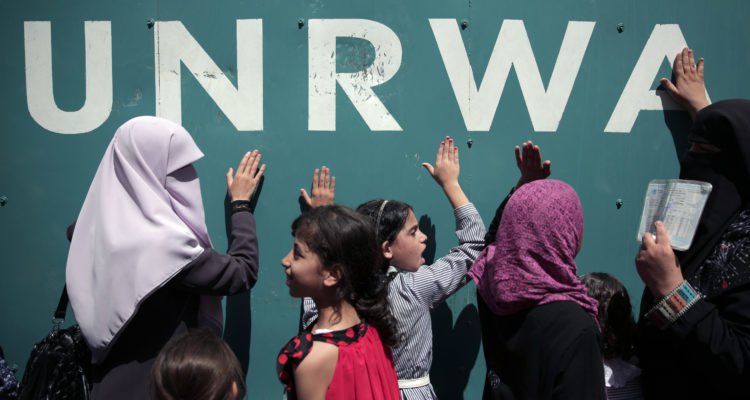The world press is filled with stories of an alleged “humanitarian crisis” underway in the Gaza Strip. IDF Chief of Staff Gadi Eisenkot gave credence to the stories this week when he told the cabinet that Israel could face another war with Hamas in Gaza as a result of the deteriorating humanitarian and economic conditions in the coastal enclave.
Eisenkot cited the lack of electricity, drinkable water, and food in the Gaza Strip, and advocated stepping up aid to the territory.
His logic is that an economic collapse would make a war scenario inevitable. As a result of Eisenkot’s view as well as that of other top security officials, Israel is for the first time weighing the idea of sending food and medicine to the Gaza Strip, and thereby prevent the deteriorating conditions from spiraling into violence,
World Israel News (WIN) spoke to several expert observers, and could not find one that agreed with Eisenkot’s assessment or his conclusions.
Prof. Hillel Frisch from Bar Ilan University’s Begin-Sadat Center for Strategic Studies has conducted extensive research on the economic situation in Gaza.
Frisch told WIN, “I cannot understand how Eisenkot and the IDF reached their conclusion. I understand why Hamas says there is a humanitarian crisis. They have been plundering the aid money for years. They tax every aid truck entering the enclave. I understand Israeli industrialists including Osem and Strauss who make money selling food to Gaza.”
“I even understand local Israeli mayors whose residents are employed to bring the aid to the Gaza crossings. We know that it requires only 50 trucks daily to stave off a real humanitarian crisis. There is no crisis. There has been an economic deterioration caused by Hamas greed and mismanagement but nowhere near a humanitarian crisis.
“I also reject these notions of allowing Gazan workers to enter Israel to generate income or having Israel build Gaza an island port off the coast. Ashdod port is only an hour away. Lack of a port is not the reason for economic problems in Gaza,” said Frisch
According to Frisch, Hamas is deterred with each round of fighting they are concerned about the pain Israel can inflict upon them. “It’s almost embarrassingly simple. The IDF wants to avoid another round of fighting by giving aid. That kind of thinking is not in Israel’s interest,” Frisch said.
‘Hamas could not care less about the people’
Dr. Mordechai Kedar from Bar Ilan University told WIN, “Gaza is in dire straits because the Hamas government could not care less about the people and cares only about those on its own payroll like security forces and teachers, Hamas spends on missiles and terror tunnels rather than on projects to make life better for the people. ”
“They rely on Israel and all the rest of the aid givers who take care of their poor people so that they can spend on their own interests. The so-called humanitarian crisis is exaggerated. What is true is that there is no hope and no future in Gaza with Hamas running things. They have no idea how to run a state. They are a Jihadi terror group controlling a territory and its people.”
David Bedein, Head of the Center for Near East Policy Research has closely monitored aid to Gaza. Bedein told WIN, “thirty nations are giving food aid to the Gaza residents through United Nations Relief and Works Agency (UNRWA) on a regular basis. All of the supplies go through Hamas. Gazans tell me that the supplies arrive at Hamas controlled warehouses, but they are not distributed. Eighty-one percent of the Gaza, population live in UNRWA camps but they are not receiving the aid that was sent. Donor countries are being duped. There is a total lack of supervision. If there is a humanitarian issue it’s of Hamas’ doing.”
In an article Prof. Frisch published in the Jerusalem Post this week, he commented, “The most important factor behind real humanitarian crises – the specter of mass hunger and contagious disease – is first and foremost the breakdown of law and order, and violence between warring militias and gangs. This was the story of Darfur, Somalia, the Central African Republic. In such a situation, the first to leave are the relief agencies, then, the local medical staffs, local government officials and anyone professional who can make it out of the bedlam, leaving the destitute to fend for themselves. Nothing could be farther from such a reality than Gaza.”
“Similarly, there is not one news item announcing the departure of a single foreign relief agency or its workers, the closure of one human rights organization in the area. Nowhere is there any evidence that the World Health Organization, which rigorously monitors the world to prevent the outbreak of contagious disease, is seriously looking at Gaza,” Frisch wrote.









